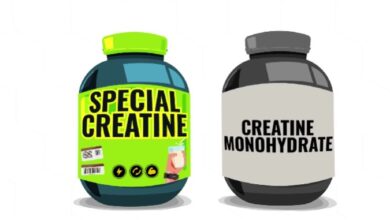Is Parmesan Cheese Halal
Parmesan cheese, renowned for its distinctive taste and granular texture, is a staple in many culinary traditions worldwide. However, for Muslims who adhere to halal dietary laws, the question “is parmesan halal?” is particularly pertinent. This article delves into the complexities surrounding the halal status of parmesan cheese, exploring its ingredients, production processes, and what makes some varieties permissible for consumption by Muslims.
Understanding Parmesan Cheese
Parmesan cheese, specifically Parmigiano Reggiano, is traditionally made from cow’s milk, salt, and rennet. The concern for Muslims arises primarily from the rennet used in the cheese-making process. Rennet is an enzyme that helps coagulate milk, and it can be derived from several sources, including:
- Animal rennet (from the stomach lining of calves)
- Microbial rennet (from fungi or bacteria)
- Plant-based rennet (from plants like thistle)
Halal Concerns with Animal Rennet
For parmesan cheese to be considered halal, the animal rennet used must come from animals slaughtered according to Islamic law (shariah). If the rennet is from animals not slaughtered in this manner, or if the cheese contains any other non-halal ingredients, it is deemed haram (forbidden) for Muslim consumption.

Key Ingredients in Parmesan Cheese
Milk
Cow’s milk is the primary ingredient. For halal considerations, it’s essential to ensure that the milk is free from any non-halal additives or cross-contamination during processing.
Rennet
The type of rennet is the most critical factor. Traditional parmesan uses animal rennet, but for a halal option, microbial or plant-based rennet must be used. Some halal-certified brands explicitly state the use of non-animal rennet, making them suitable for Muslims.
Additional Ingredients
Other ingredients like unsalted butter, whey, and sometimes even white wine can be added to enhance the flavor and texture of parmesan cheese. Each of these components must also be scrutinized to ensure they comply with halal standards.
Islamic Scholars’ Opinions
Islamic scholars have varied opinions on the permissibility of parmesan cheese. The consensus is that if the rennet is derived from an animal slaughtered according to Islamic law, the cheese is halal. However, if the rennet comes from animals not slaughtered in this way, or if there is any doubt about the source, it is recommended to avoid it to be cautious.
Halal Parmesan Cheese Brands
Given the complexity of ensuring all ingredients are halal, finding reliable brands that produce halal parmesan cheese is crucial. Some brands have adapted their production processes to meet halal requirements by using microbial or plant-based rennet. Notable halal parmesan cheese brands include:
- Parmigiano Reggiano Halal
- Miller’s Parmesan Cheese
These brands ensure that all ingredients and production methods comply with halal standards, providing reassurance to Muslim consumers.
Where to Buy Halal Parmesan Cheese
Halal parmesan cheese can be found in specialty halal grocery stores and online retailers. Always look for certification labels or inquire directly with the manufacturer to confirm the halal status of the cheese. Stores that focus on halal products often have a selection of halal-certified cheeses, including parmesan.
Frequently Asked Questions
Is Parmesan cheese ever made with vegetarian rennet?
Yes, some manufacturers produce Parmesan cheese using vegetarian or microbial rennet, making it suitable for vegetarians and those who follow a halal diet. Always check the product label for specific information about the rennet used.
Can Parmesan cheese be considered halal if it contains alcohol?
No, Parmesan cheese that contains alcohol would not be considered halal. Some specialty types of Parmesan might use white wine in their production, so it’s essential to check the ingredients and avoid any that list alcohol.
Is Parmesan cheese made with microbial rennet available in supermarkets?
Yes, you can find Parmesan cheese made with microbial rennet in supermarkets, especially in stores that cater to halal or vegetarian diets. Look for brands that specifically mention the use of microbial or vegetarian rennet.
Are there specific brands known for halal Parmesan cheese?
Yes, there are brands known for producing halal Parmesan cheese. For instance, Parmigiano Reggiano Halal and Miller’s are brands that offer halal-certified Parmesan, adhering to Islamic dietary laws.
Does the type of milk used in Parmesan cheese affect its halal status?
No, the type of milk used (typically cow’s milk) does not affect the halal status of Parmesan cheese. The main concern is the source of the rennet and other ingredients like alcohol or cross-contamination with non-halal substances.
How can one verify if Parmesan cheese is halal?
To verify if Parmesan cheese is halal, check for halal certification on the packaging. This certification ensures that all ingredients and production processes comply with Islamic dietary laws. If in doubt, contacting the manufacturer directly can provide clarification.
Is there a taste difference between halal and non-halal Parmesan cheese?
The taste of halal and non-halal Parmesan cheese is generally similar, as the primary difference lies in the source of the rennet used. However, some subtle taste variations might be present depending on the specific ingredients and production methods used by different manufacturers.
Can Parmesan cheese be part of a vegetarian diet?
Parmesan cheese can be part of a vegetarian diet if it is made with vegetarian rennet instead of traditional animal rennet. Many brands now offer vegetarian-friendly options.
Is it common for Parmesan cheese to be made without rennet?
Traditional Parmesan cheese is made with rennet, which is essential for coagulating the milk. However, there are vegetarian and microbial rennet alternatives that can be used to make Parmesan cheese, providing options for those who avoid animal-derived rennet.
What should Muslims look for on labels when buying Parmesan cheese?
Muslims should look for halal certification on the cheese packaging, ensuring that all ingredients and production processes meet halal standards. Additionally, checking for specific information about the rennet and other potential haram ingredients is crucial.
Are there any well-known non-halal brands of Parmesan cheese?
Yes, some well-known non-halal brands of Parmesan cheese include Kraft, Polly-O, and Sargento. These brands typically use traditional animal rennet, which may not be halal.
Does Parmesan cheese contain any pork products?
No, authentic Parmesan cheese does not contain pork products. The concern is primarily about the source of rennet. If rennet is derived from non-halal animals, it would make the cheese haram.
Are there specific halal stores that sell Parmesan cheese?
Yes, many halal grocery stores and online retailers specialize in halal products, including Parmesan cheese. These stores are more likely to stock halal-certified cheeses and can provide assurance about their halal status.
What are some alternative cheeses to Parmesan that are usually halal?
Some alternatives to Parmesan that are typically halal include Cheddar, Gouda, and Mozzarella, especially when made with vegetarian or microbial rennet. These cheeses are widely available and often come with halal certification.
Is cross-contamination a concern with Parmesan cheese?
Yes, cross-contamination can be a concern if halal and non-halal products are processed using the same equipment. Ensuring the cheese comes from a manufacturer that strictly adheres to halal standards can help mitigate this risk.
Conclusion
Determining if parmesan cheese is halal hinges on the ingredients and the methods used in its production. While traditional parmesan cheese often uses animal rennet, which can be problematic for halal compliance, there are halal-certified alternatives available. Muslim consumers should carefully check labels, seek products with halal certification, and opt for cheeses made with microbial or plant-based rennet to ensure their dietary choices align with their faith.
Read also: Is Cheese Halal





